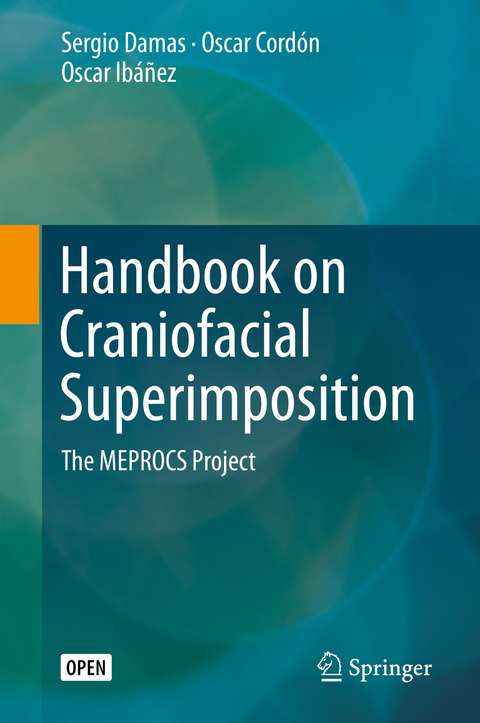
Handbook on Craniofacial Superimposition
Springer International Publishing (Verlag)
978-3-319-11136-0 (ISBN)
This open access handbook presents a trustable craniofacial superimposition methodological framework. It includes detailed technical and practical overviews, and discussions about the latest tools and open problems, covering the educational, technical, ethical, and security aspects of this forensic identification technique. The book will be of particular interest to researchers and practitioners in forensic anthropology and forensic ID, and also researchers in computational intelligence.
It is the final result of a European project, New Methodologies and Protocols of Forensic Identification by Craniofacial Superimposition (MEPROCS). The project collaborators who contributed to this handbook are: S. Damas, O. Ibáñez, M.I. Huete, T. Kahana, C. Wilkinson, E. Ferguson, C. Erolin, C. Cattaneo, P.T. Jayaprakash, R. Jankauskas, F. Cavalli, K. Imaizumi, R. Vicente, D. Navega, E. Cunha, A.H. Ross, E. Veselovskaya, A. Abramov, P. Lestón, F. Molinero, E. Ruiz, F. Navarro, J. Cardoso, F.Viegas, D. Humpire, R. Hardiman, J. Clement, A. Valsecchi, B.R. Campomanes-Alvarez, C. Campomanes-Alvarez, A.S. Çagdir, T. Briers, M. Steyn, M. Viniero, D.N. Vieira, and O. Cordón.
Prof. Sergio Damas received his PhD in Computer Science from the University of Granada, Spain, where he is now a Full Professor. He was Deputy Principal Researcher (2006-2011) and Principal Researcher (2011-2016) at the European Centre for Soft Computing. He has published 150+ scientific publications (including 40+ JCR-SCI indexed journal papers). Prof. Damas has supervised seven PhD dissertations; one of them received the "Best PhD Thesis Award" from the European Society for Fuzzy Logic and Technology (EUSFLAT). He owns an international patent on an intelligent system to perform craniofacial superimposition ID using Soft Computing; the corresponding software is currently commercialized by Panacea Cooperative Research. And he received the "Outstanding Applications of Fuzzy Technology" award from the International Fuzzy Systems Association (IFSA). Prof. Damas has also coordinated 30+ research project and contracts. In particular, he was the global coordinator of the "New Methodologies and Protocols of Forensic Identification by Craniofacial Superimposition (MEPROCS)" European project. Prof. Oscar Cordón received his PhD in Computer Science from the University of Granada, Spain, where he is now a Full Professor. He was a founding researcher of the European Centre for Soft Computing (2006-2015). He was awarded the IEEE CIS Outstanding Early Career Award (2011) and the Spanish National Award on Computer Science ARITMEL (2014), and in 2018 he became an IEEE Fellow. He has published 360+ scientific publications (including 100 JCR-SCI-indexed journal papers), and he has advised 18 Ph.D. dissertations, one of which received the "Best PhD Thesis Award" from the European Society for Fuzzy Logic and Technology (EUSFLAT). Prof. Cordón has coordinated 31 research projects and contracts. He owns an international patent on an intelligent system to perform craniofacial superimposition ID using Soft Computing; the corresponding software is currently commercialized by Panacea Cooperative Research. And he received the "Outstanding Applications of Fuzzy Technology" award from the International Fuzzy Systems Association (IFSA). He is also included in the top 1% most-cited researchers in the world according to the Web of Knowledge. Dr. Oscar Ibáñez is CTO at Panacea Cooperative Research. He studied in five different universities, and he has done research in eight different labs. He has coauthored two patents, 29 SCI-JCR indexed journal papers, and 30+ papers in conferences in collaboration with 70 researchers from 32 different research institutions dealing with different research fields: computer vision, medical imaging, soft computing, forensic anthropology, neurology, and ocean engineering. He has participated in four European and nine Spanish research projects. He has received several national and international awards and recognitions: the postdoctoral grants "Juan de la Cierva" and "Juan de la Cierva Incorporación", the Best Paper Award from the IEEE Computational Intelligence Magazine, the Best PhD Thesis Award from the European Society for Fuzzy Logic and Technology (EUSFLAT), and also the Award for Outstanding Applications of Fuzzy Technology from the International Fuzzy Systems Association (IFSA).
Introduction to Craniofacial Superimposition.- Importance of Craniofacial Superimposition in Forensic Identification: Historical Perspective.- Relationships Between the Skull and the Face in the Forensic Realm.- Craniofacial Superimposition Techniques.- Craniofacial Superimposition: The State of the Art.- Ethical and Legal Issues in Craniofacial Superimposition.- Experimental Study of Methodologies, Tools and Criteria.- MEPROCS Craniofacial Superimposition Framework.- MEPROCS Framework Validation.- Conclusions.- Appendices.- References.
| Erscheint lt. Verlag | 14.11.2019 |
|---|---|
| Zusatzinfo | XLII, 205 p. 43 illus., 39 illus. in color. |
| Verlagsort | Cham |
| Sprache | englisch |
| Maße | 155 x 235 mm |
| Themenwelt | Informatik ► Theorie / Studium ► Künstliche Intelligenz / Robotik |
| Studium ► 2. Studienabschnitt (Klinik) ► Rechtsmedizin | |
| Recht / Steuern ► Strafrecht ► Kriminologie | |
| Schlagworte | CFS Methodologies • Craniofacial Superimposition • Forensic Identification • Forensic Science • MEPROCS Project • open access • physical anthropology |
| ISBN-10 | 3-319-11136-1 / 3319111361 |
| ISBN-13 | 978-3-319-11136-0 / 9783319111360 |
| Zustand | Neuware |
| Haben Sie eine Frage zum Produkt? |
aus dem Bereich


